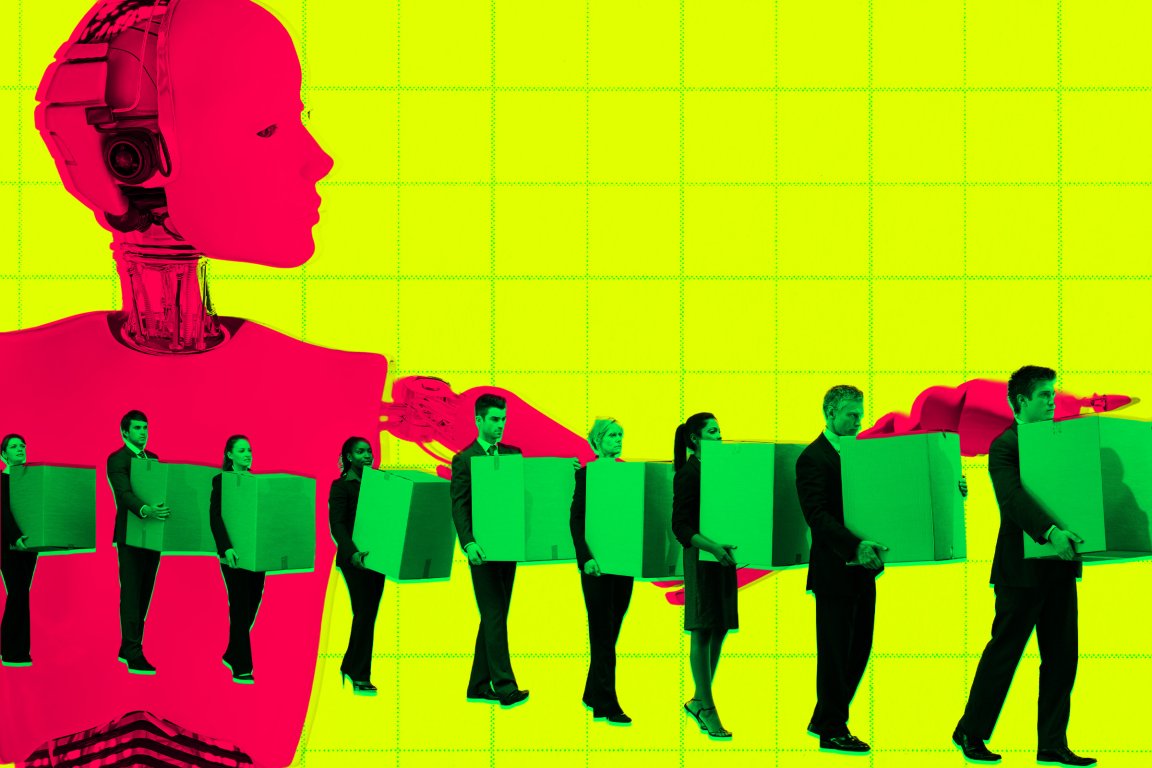
There’s no question that the job market is a mess. According to Labor Department data, nearly two million Americans have been without a job for 27 weeks or more, the highest figure since 2022. And it’s hitting white collar jobs hard: this week alone, Amazon cut its corporate workforce by 14,000 jobs, UPS cut 34,000 operational workforce positions, and Target and Paramount axed 1,800 and 1,000 jobs, respectively.
Many are blaming those cuts on AI. Everyone from Senator Bernie Sanders to Federal Reserve chair Jerome Powell is wringing their hands about the tech’s effect on employment. Mike Hoffman, CEO of growth advisory firm SBI, told the Wall Street Journal that productivity surged when he cut his software development team by 80 percent. And Meta just culled 600 employees from the AI Superintelligence lab — after dropping billions to beef up the team — and blamed advancements in automation.
Others aren’t so sure. New research found that even the world’s strongest AI agents struggled to perform the vast majority of tasks that companies currently lean on independent contractors for. According to a recent study from MIT, 95 percent of companies that adopt AI see zero meaningful revenue growth. Some companies are finding they’re forced to hire contractors to fix AI’s mistakes, or even to re-hire staff they terminated in favor of the tech.
It all raises an interesting counter-possibility: maybe instead of AI actually replacing human-level intellectual labor, bosses are running with the narrative that it’s ready to replace human workers to justify layoffs — when what’s really happening is they’re offloading work onto a smaller human workforce, or forcing their overburdened remaining employees to produce lower quality results.
The reality is that there are other major headwinds dragging down the economy. The US is now in a perpetual state of political uncertainty that has directly impacted many employers. President Donald Trump’s tariffs were announced, postponed, instated, rolled back, rinsed and repeated; his restrictive immigration policies and deportations are shrinking the workforce and increasing labor costs; cutting the $7,500 consumer incentive for electric vehicles is forcing layoffs in that sector.
AI is a flashy scapegoat for mounting white collar layoffs, in other words, and if it keeps improving, it may eventually pose a real threat to jobs. But for now, it feels more like a bogeyman to rationalize short-term cost cutting — and any companies that indulge in it may find that they’re undermining their reputation and institutional knowledge for years to come.
More on the job market: Fed Boss Concerned About AI’s Effect on Job Market